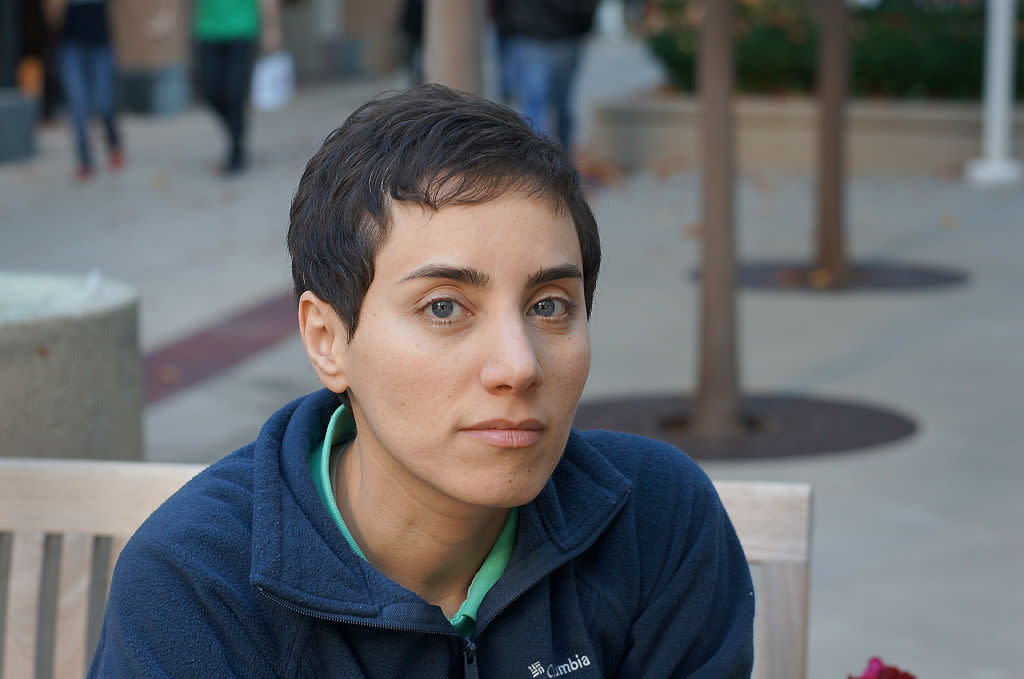Maryam Mirzakhani, the first woman to win a major math prize, has died at 40
The first woman to ever win a global math prize, Maryam Mirzakhani, died of breast cancer on Saturday at age 4o. Her family, as well as Stanford University, where she had been working as a professor since 2008, confirmed her death to the media. She is survived by her husband, Jan Vondrák, and her daughter, Anahita.
Mirzakhani is best known for winning the Fields Medal, which is anecdotally referred to as “the Nobel Prize for math.” It’s given out every four years by the International Congress of Mathematicians to “recognize outstanding mathematical achievement for existing work and for the promise of future achievement.” The award has been given since 1936, so her win in 2014 was a longtime coming for women in her field.
The Tehran-born mathematician won the Fields Medal for her “understanding of curved surfaces,” which might sound impossible to some people. But to Mirzakhani, it was just about putting together a puzzle.
After collecting the prestigious prize in Seoul in 2014, Mirzakhani said that she wanted to be a writer when she was young, but then found that math did the same sort of thing for her.
“It is fun, it’s like solving a puzzle or connecting the dots in a detective case,” she said at the time. Her daughter felt the same way. According NPR, Anahita loved her mother’s work and called it a “painting,” because of all of her doodles and notes in the margins of her notes while working out a proof.
A genius? Yes. But also a daughter, a mother and a wife. pic.twitter.com/PJanwHWgw1
— Firouz M. Naderi (@Firouz_Naderi) July 15, 2017
Mirzakhani grew up in Iran and went to an all-girls high school, where she competed in 1994 and 1995 in the International Mathematical Olympiad. She went to college at Sharif University in Tehran, and then onto Harvard University to get her doctorate degree in math. Before teaching at Stanford University, she worked at Princeton University for a few years.
— Firouz M. Naderi (@Firouz_Naderi) July 15, 2017
Most recently, she was doing research with Alex Eskin at the University of Chicago, mapping the trajectory of a billiard ball on polygonal tables.
Basically, she was maths genius and a role model for young women everywhere.
She told The Guardian in 2014 that it wasn’t until she was encouraged to spend more time with numbers that she felt math was a fit for her. But the more she worked and was egged on by teachers and supportive parents, it became her calling. Mirzakhani said:
“I don’t think that everyone should become a mathematician, but I do believe that many students don’t give mathematics a real chance. I did poorly in math for a couple of years in middle school. I was just not interested in thinking about it. I can see that without being excited, mathematics can look pointless and cold. The beauty of mathematics only shows itself to more patient followers.”
Mirzakhani will of course be missed by her family and colleagues. But her work and legacy will live on, and hopefully inspire other young women to follow their hearts into STEM.


